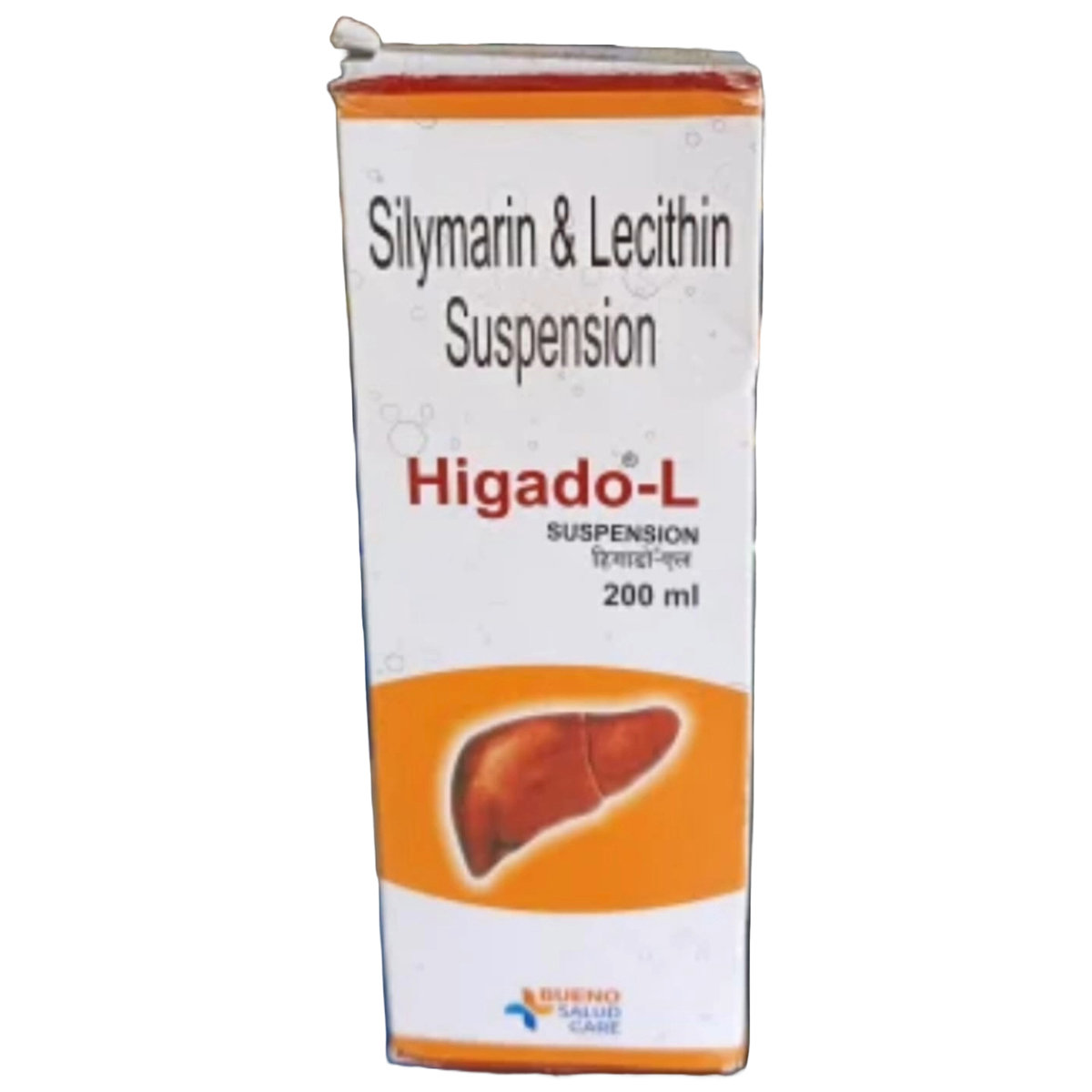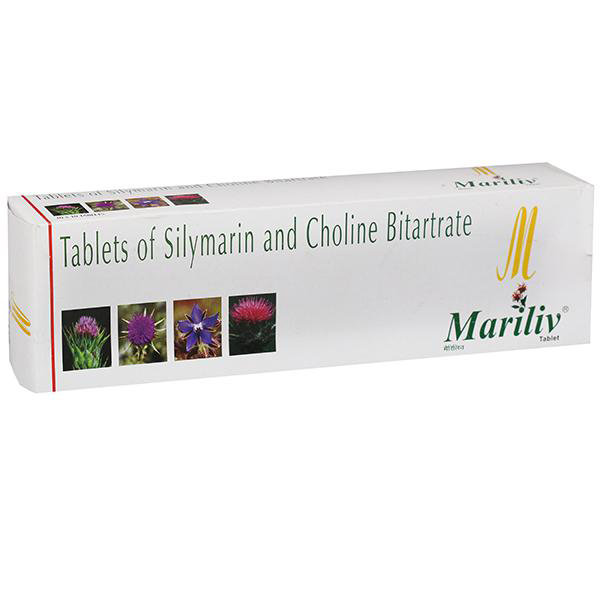Silymarin
About Silymarin
Silymarin is used in the treatment of chronic liver disease and liver cirrhosis. Liver diseases lead to disturbance of vital liver functions. Silymarin effectively prevents multiple liver disease mechanisms and ensures protection, regeneration, and rejuvenation of the liver.
Silymarin contains Silymarin. Silymarin is obtained from the milk thistle plant. Silymarin’s main component is silibinin, which has strong antioxidative and antifibrotic properties. These properties make it useful for the treatment of chronic liver diseases and liver cirrhosis. Silymarin helps in protecting the liver from free radical damage and prevents hepatic lipid peroxidation. It increases glutathione and protein synthesis and helps in the production of new liver cells.
Take Silymarin as recommended. In some cases, you may experience certain common side effects, such as back pain, diarrhoea, dizziness, hair loss, nausea, and rash. Most of these side effects do not require medical attention and will resolve gradually over time. However, you are advised to talk to your doctor if you experience these side effects persistently.
Let your doctor know if you are allergic to any of the contents of this medication. Consult your doctor before taking this tablet if you are pregnant or breastfeeding. Be cautious while driving and operating machinery, as it is unknown if this medication interferes with your ability to drive. Avoid consuming alcohol as it could lead to further liver damage. This medication should not be given to children unless recommended by a doctor.
Uses of Silymarin
Medicinal Benefits
Silymarin contains Silymarin. Silymarin is obtained from the milk thistle plant. Silymarin’s main component is silibinin, which has strong antioxidative and antifibrotic properties. These properties make it useful for the treatment of chronic liver diseases and liver cirrhosis. Silymarin helps in protecting the liver from free radical damage and prevents hepatic lipid peroxidation. It increases glutathione and protein synthesis and helps in the production of new liver cells.
Directions for Use
Storage
Side Effects of Silymarin
- Back pain
- Diarrhea
- Dizziness
- Hair loss
- Nausea
- Rash
Drug Warnings
Do not take Silymarin and consult your doctor if you are allergic to any of its contents; if you have inflammation of gall bladder and bile ducts, narrowing or blockage of bile ducts, biliary colic, calcified gallstones, improper constriction of the gallbladder, gastric or duodenal ulcer. Inform your doctor before taking Silymarin if you have variceal bleeding (high blood pressure in portal veins), ascites (excess abdominal fluid), liver encephalopathy or liver disease. Consult your doctor before taking Silymarin if you are pregnant or breastfeeding. Silymarin should be given to children only if recommended by the doctor. Avoid consuming alcohol along with Silymarin as it could lead to increased liver damage. Keep your doctor informed about your health condition and medicines to rule out any unpleasant side effects.
Drug Interactions
Drug-Drug Interactions: Silymarin may have interaction with antibiotics (clarithromycin), anticoagulants (warfarin), NSAIDs ( ibuprofen, celecoxib, diclofenac), Statin drugs like ( lovastatin, fluvastatin)
Drug-Food Interactions: Avoid consuming alcohol as it could lead to further liver damage.
Drug-Disease Interactions: Silymarin may have interactions with biliary obstruction and liver impairment.
Drug-Drug Interactions Checker List:
Safety Advice

Alcohol
cautionAvoid consumption of alcohol while taking this medication as it may lead to further liver damage.

Pregnancy
cautionConsult your doctor before taking this medicine if you are pregnant; your doctor will recommend only if the benefits outweigh the risks.

Breast Feeding
cautionConsult your doctor before taking this medicine; your doctor will decide whether this medicine can be taken by breastfeeding mothers or not.

Driving
cautionIt is unknown whether this medication affects driving. However, if you notice any symptoms, please consult your doctor.

Liver
consult your doctorThis medicine is used to treat various liver diseases. So, it is probably safe to be taken by patients with liver impairment. However, consult your doctor if you have any concerns.

Kidney
cautionConsult your doctor before taking this medicine if you have kidney impairment or any concerns regarding this.

Children
cautionLimited information is available regarding the usage of this medication in children. Please consult your doctor.
Habit Forming
Diet & Lifestyle Advise
- Include foods such as bell peppers, citrus fruits, leafy vegetables, tomatoes, milk, fish, low-fat dairy, beans, nuts, lentils, tofu and tempeh in your diet.
- Eat a healthy, well-balanced diet that includes fruits and vegetables.
- Foods rich in Vitamin B, C and calcium, are good for the gallbladder.
- Plant-based protein foods such as beans, nuts, lentils, tofu and tempeh help in preventing gallbladder disease.
- Avoid high-fat, trans-fat, and processed foods.
- White bread, white pasta and sugars should be avoided.
- Avoid tobacco and alcohol consumption.
Patients Concern
Disease/Condition Glossary
Liver disease: The liver is an important organ responsible for carrying out many vital functions such as metabolism, detoxification of waste, and energy storage. Liver diseases occur due to disturbances of liver functions. Liver diseases include acute and chronic hepatitis, chronic alcoholic liver damage, fatty liver, jaundice, liver cirrhosis, and non-alcoholic steatohepatitis (non-alcoholic fatty liver disease). Hepatitis occurs due to viral infection leading to liver damage and inflammation, making it difficult for the liver to function properly. The fatty liver could occur due to excess alcohol consumption (alcoholic fatty liver) or other factors (non-alcoholic fatty liver). Liver cirrhosis is the damage of the liver, which causes scarring and liver failure. Jaundice occurs due to the build-up of bilirubin in the blood, which causes yellowing of skin and eyes. Symptoms include dark urine, yellowing of skin and eyes, loss of appetite, fatigue, bloody or dark stools, nausea, and vomiting.
FAQs
Do not discontinue this medicine without consulting your doctor. To treat your condition effectively, continue taking this medicine for as long as recommended. Do not be reluctant to speak with your doctor if you feel any difficulty while taking this medicine.
Diarrhoea could be a side-effect of this medicine. Drink plenty of fluids and eat non-spicy food if you experience diarrhoea. Consult your doctor if you have severe diarrhoea or if you find blood in stools.
This medicine effectively prevents multiple liver diseases mechanisms and ensures protection, regeneration, and rejuvenation of the liver. Thereby, treats liver disease and helps in the proper functioning of the liver.
Avoid taking aluminium-containing antacids along with Silymarin as they might interfere with the absorption of Silymarin. Maintain a gap of 2hours between both or consult your doctor for further advice.
Oral contraceptives (oestrogen) might promote the formation of gallstones. Consult your doctor if you have any concerns regarding this; your doctor may advise other methods of contraception.







